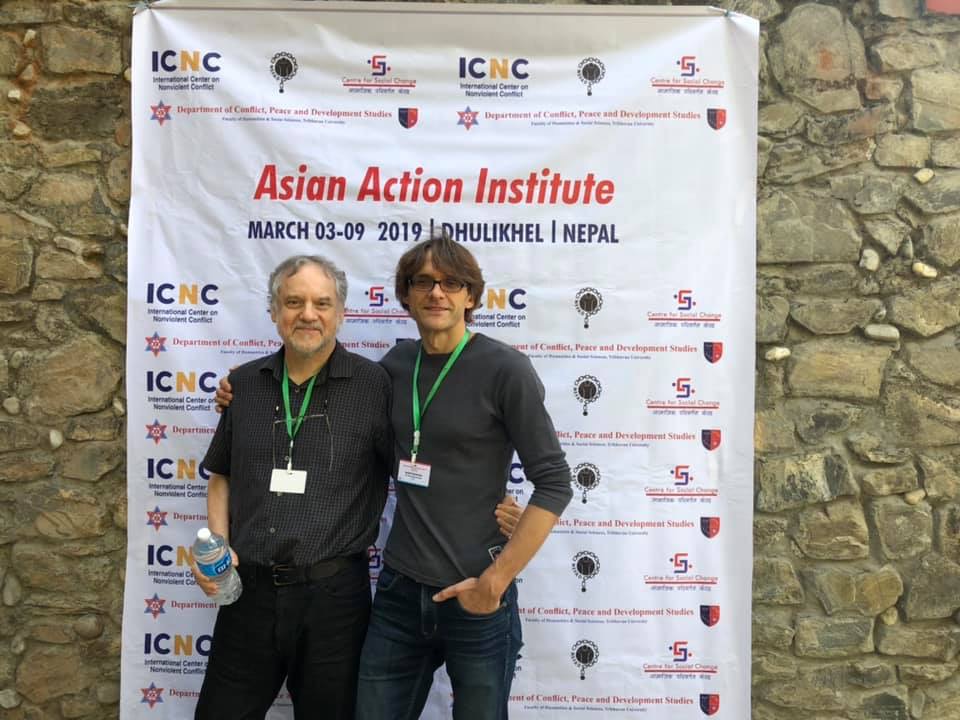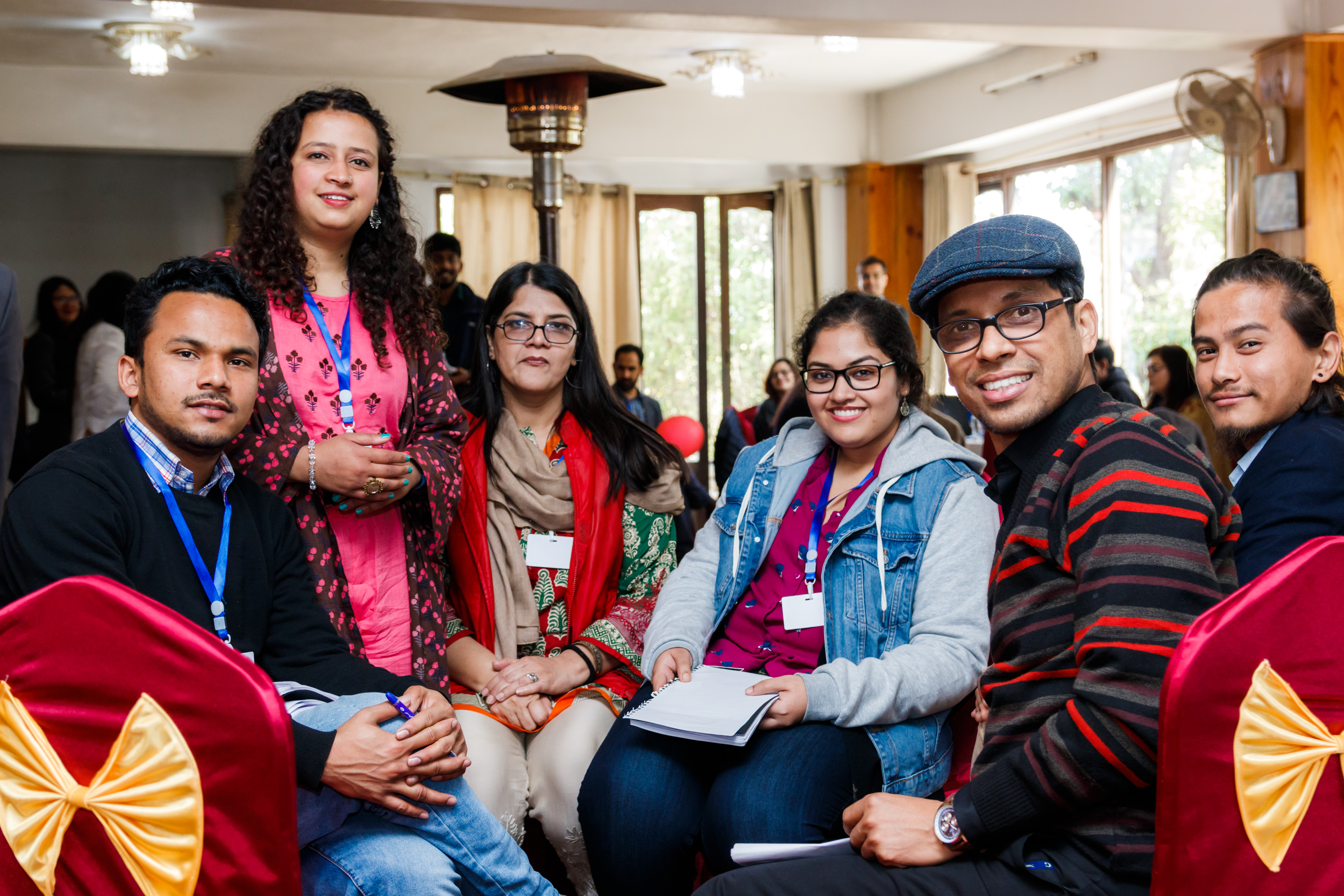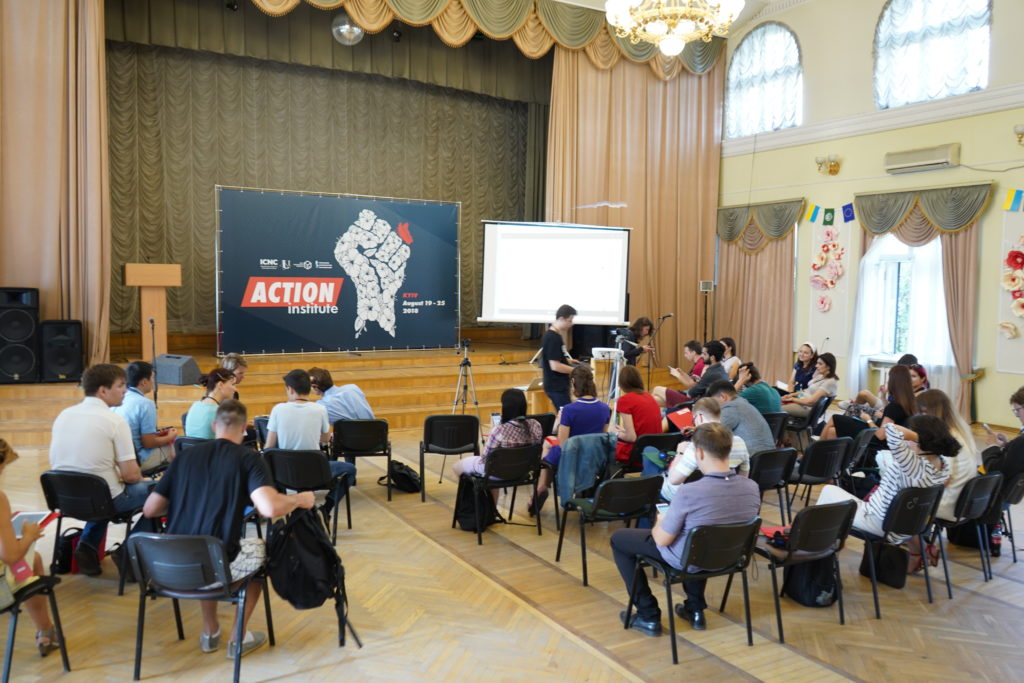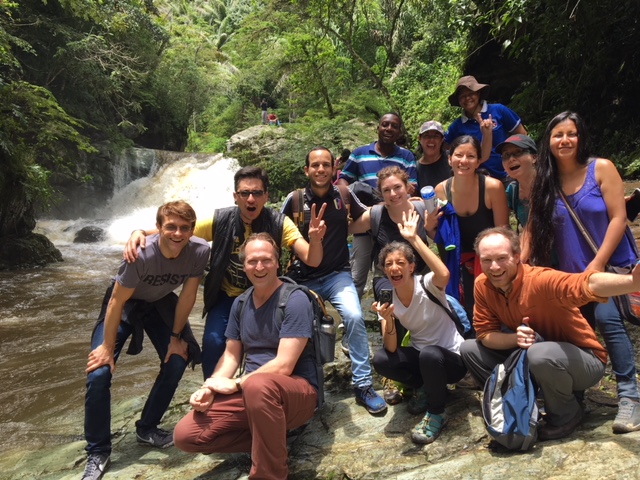Regional Institutes
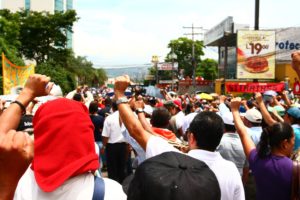 ICNC organizes Regional Institutes on the Study and Practice of Strategic Nonviolent Action in partnership with local organizations in different parts of the world. These Institutes offer activists, practitioners, educators, and academics opportunities to engage in structured and applied learning on civic organizing, mobilization, and dynamics of nonviolent struggles for rights, freedom, and justice.
ICNC organizes Regional Institutes on the Study and Practice of Strategic Nonviolent Action in partnership with local organizations in different parts of the world. These Institutes offer activists, practitioners, educators, and academics opportunities to engage in structured and applied learning on civic organizing, mobilization, and dynamics of nonviolent struggles for rights, freedom, and justice.
The goals of the Regional Institutes are:
• to build a vibrant network of grassroots activists and scholars from the region who are interested in studying and/or are involved in the practice of strategic nonviolent action;
• to offer structured learning about effective nonviolent organizing;
• to generate knowledge and share information about nonviolent campaigns in the region, including key lessons from case studies that inform a more strategic approach to nonviolent actions;
• to establish and expand the network of practitioners in the region and build partnerships between practitioners and scholars; and
• to foster information exchange related to nonviolent organizing and mobilization for social justice, human rights, and democratic rule of law.
Ongoing and Upcoming Regional Institutes 2021-2022
South Asian Regional Institute on the Study and Practice of Strategic Nonviolent Action
In 2021–2022, the Centre for Social Change in Nepal is spearheading an online sequel to its Asian Regional Institute: South Asian Digital Educational Initiatives on Nonviolent Action. 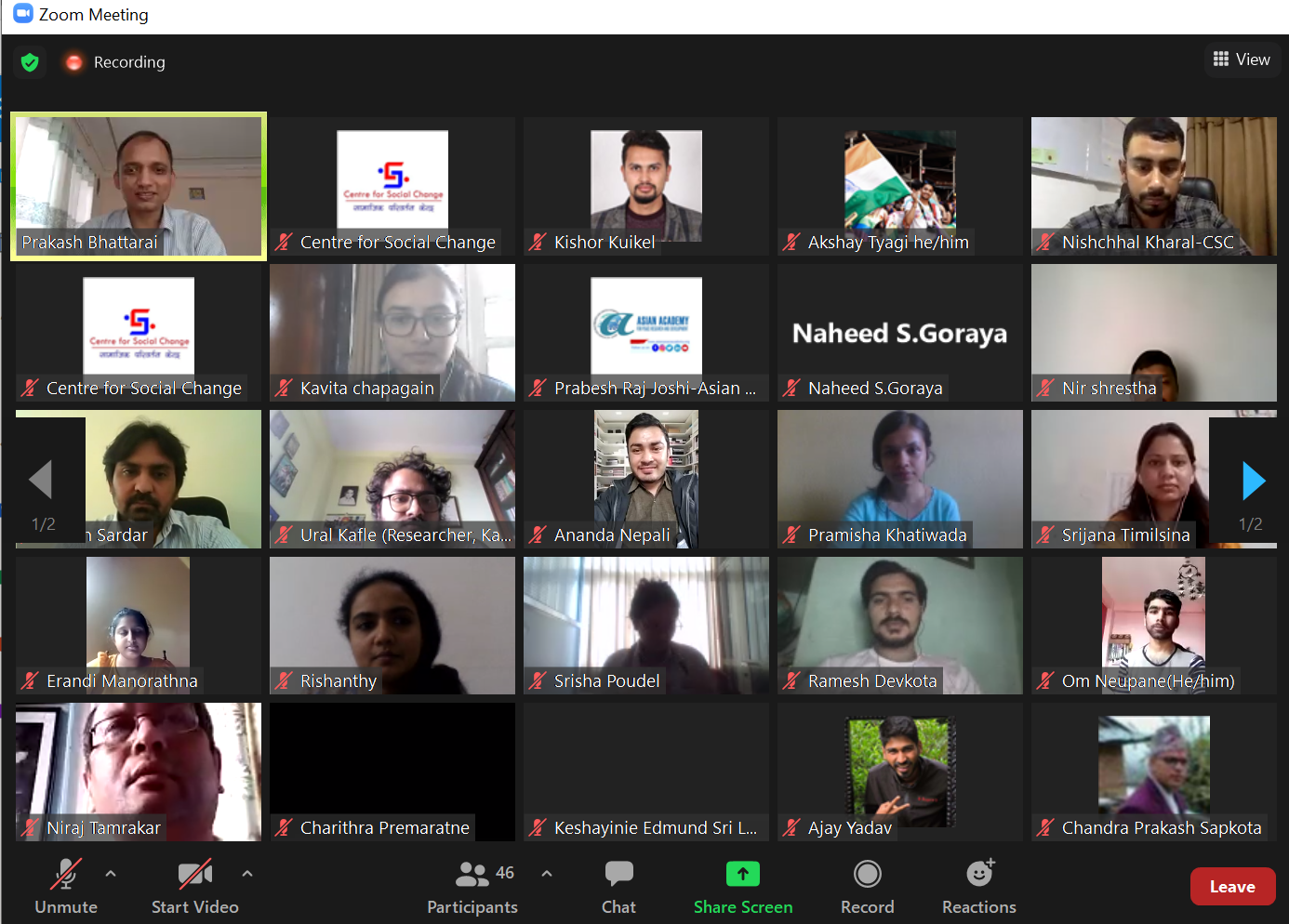
These digital educational initiatives that will be pursued from January 2021 until June 2022 consist of:
- Webinars focused on nonviolent mobilizations and campaigns in the region of South Asia
- Blog posts covering a wide range of topics related to nonviolent campaigns in South Asia
- Two 4-week-long online courses on civil resistance and its strategies
The goals of the South Asian educational initiatives on nonviolent action are to:
- Educate students, youth, and other interested audiences from the South Asia region about civil resistance and strategic nonviolent action;
- Provide linking, learning, and knowledge-sharing opportunities for the alumni of ‘Asian Action Institute’
- Create a digital platform for learning and knowledge sharing between grassroots activists, their allies, and educators interested in strategic organizing and nonviolent action in the South Asian region.
Programa Regional para el Estudio y la Práctica de la Acción Noviolenta Estratégica en las Américas
ICNC has partnered again with FLACSO–PUCE–CEMPROC to launch the Spanish-language Virtual Regional institute on Nonviolent Action in the Americas in 2021.
As part of the virtual institute, the Latin American partners ran a moderated online course in Spring 2021 based on the structure of the ICNC online course “People Power: The Strategic Dynamic of Civil Resistance,” with an emphasis on Latin American cases. The course was held in Spanish, which enabled more activists from the region to participate. The course aimed, among others,
- To reach out to a Spanish-speaking audience and enable them to build their capacities in nonviolent action;
- To facilitate exchanges between the learning community about a broad range of nonviolent resistance campaigns in Latin America;
- To disseminate and share the theory and practice of strategic nonviolent action and information about nonviolent campaigns in Latin America.
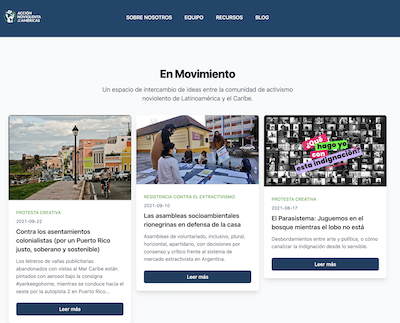 Sixty participants were selected and invited to join the course. From a snippet of the final course evaluation, most participants thought their engagement in the online course was a positive experience (average: 4.9/5) and that they would recommend this learning opportunity to others (average: 4.8/5). The respondents also reported having more knowledge about civil resistance than before participating in the online course (4.8/5).
Sixty participants were selected and invited to join the course. From a snippet of the final course evaluation, most participants thought their engagement in the online course was a positive experience (average: 4.9/5) and that they would recommend this learning opportunity to others (average: 4.8/5). The respondents also reported having more knowledge about civil resistance than before participating in the online course (4.8/5).
In Fall 2021, the Latin American partners will develop a Spanish-language blog on civil resistance and set up and run a Spanish-language participant-led online course informed by the experience, lessons learned, and curriculum developed for a moderated online course in in Spring 2021.
Eastern European Digital Institute on Civil Resistance
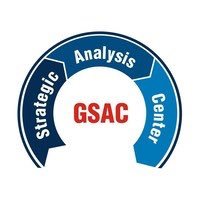 The Georgian Strategic Analysis Center in Tbilisi, Georgia, with support from ICNC, is tasked with launching a bilingual Russian–English Eastern European Digital Institute on Civil Resistance in Fall 2021.
The Georgian Strategic Analysis Center in Tbilisi, Georgia, with support from ICNC, is tasked with launching a bilingual Russian–English Eastern European Digital Institute on Civil Resistance in Fall 2021.
The initiative consists of:
- an international online symposium on civil resistance with recognized speakers that will, among others, discuss civil resistance campaigns against autocratic regimes, challenges and opportunities for pro-democracy activism, effective external support to nonviolent movements and democracy promotion, focused specifically on the region of Eastern Europe;
- a moderated bilingual Russian–English online course on civil resistance that will be developed based on the curriculum that ICNC has used successfully in its past moderated online courses. This curriculum, that will be available in Russian language, will be further refined with the focus on nonviolent organizing and campaigns in Eastern Europe.
Previous Regional Institutes
Second South Asian Regional Institute on the Study and Practice of Strategic Nonviolent Action
Location: Kathmandu, Nepal
Dates: April 20–26, 2020
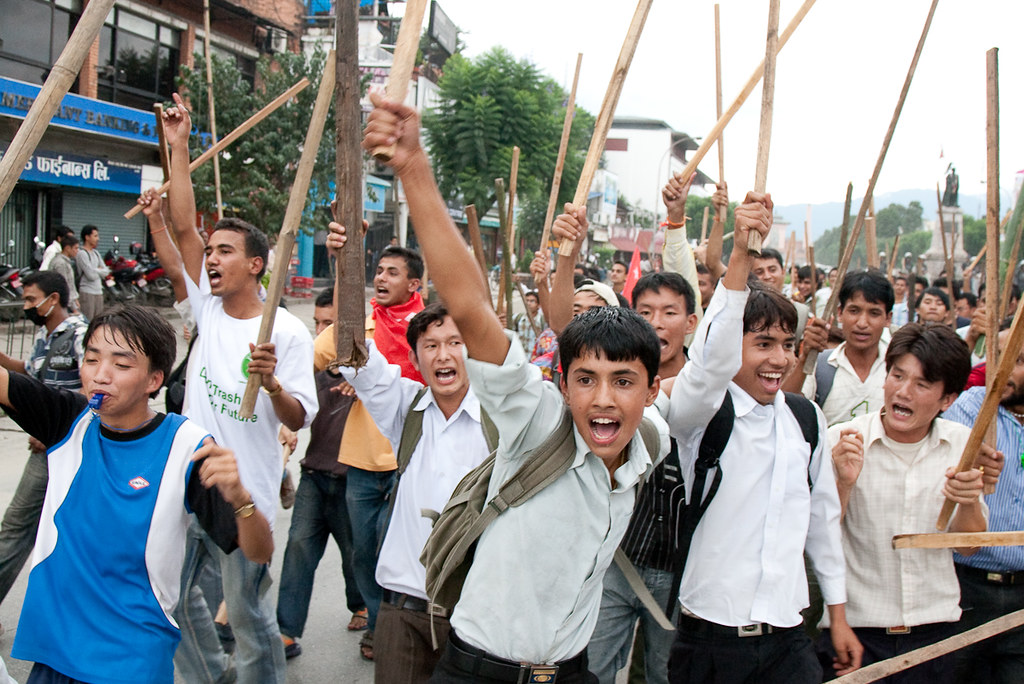
Photo by Ingmar Zahorsky. Some rights reserved. Flickr.
The South Asian Regional Institute on the Study and Practice of Strategic Nonviolent Action offers practitioners and scholars alike a great opportunity to learn about and reflect on ways to achieve social change nonviolently.
The institute’s program is divided into three parts:
- general knowledge about the dynamics and effectiveness of civil resistance
- the study of specific local and regional cases of nonviolent campaigns and movements
- collaborative groups where participants will work together on strategic action plans for campaigns
Participants: This Institute is designed for activists, organizers, scholars, teachers, civil society professionals, as well as civic and political leaders across South Asia.
Presenters: International Center on Nonviolent Conflict, Center for Social Change, Department of Conflict, Peace and Development Studies at Tribhuvan University, and the National Network of the Families of the Disappeared and Missing Nepal
Institute Language: Presentations will be given in English.
Cost: $150. There are limited partial and full scholarships available, especially for grassroots activists without institutional funding. The program fee covers participation in the Asian Action Institute, food, lodging, resource materials, certificates, local transportation and a field trip. Travel or air flight or any visa application expenses are not included in this fee. Participants can apply for a scholarship on a needs basis along with their application.
Application Deadline: The application window closed on Wednesday, February 5, 2020
Third Latin American Regional Institute on the Study and Practice of Strategic Nonviolent Action
Location: Quito, Ecuador
Dates: March 8–14, 2020
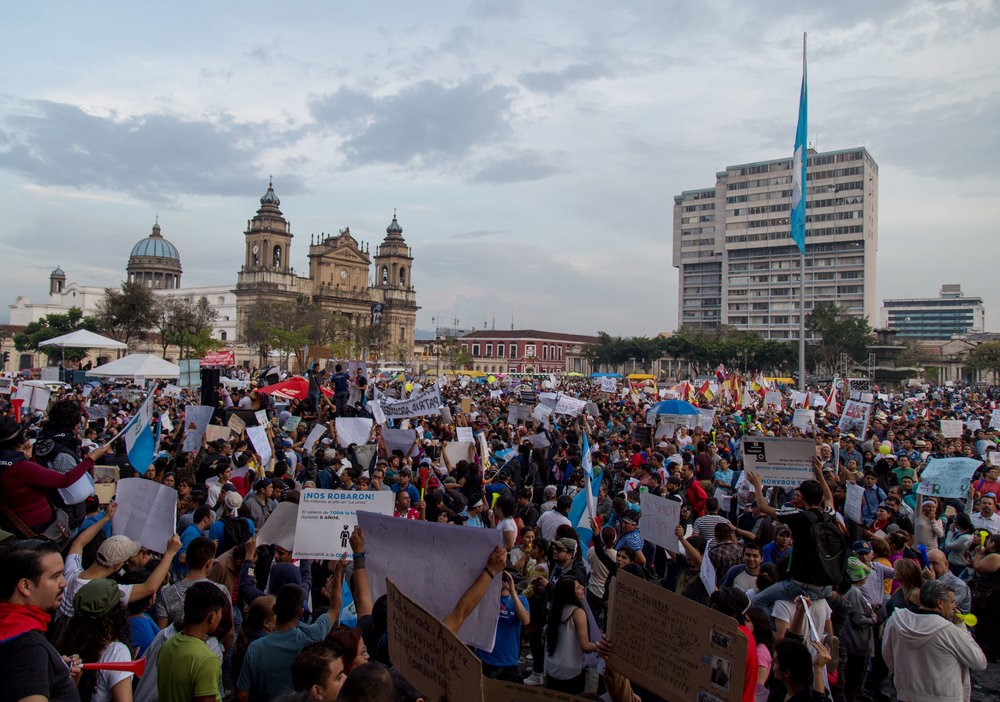
The third annual Latin American Regional Institute in Quito will focus on how strategic nonviolent action works, why nonviolent campaigns succeed or fail, nonviolent strategy and tactics, case studies of movements and campaigns from Latin America and around the world, and how strategic nonviolent action shapes societies, national, and international affairs.
This course is designed to equip activists, scholars, teachers, professionals, and other future peacebuilders from all countries in the Americas with practical tools, knowledge, and hands-on experience to understand the power of nonviolent action to transform the state and society and improve social justice.
The program will include classroom discussions, a field trip, and practical workshops to design nonviolent strategies, apply nonviolent tactics, and use communications in support of nonviolent campaigns. In this sense, the Regional Institute on the Study and Practice of Strategic Nonviolent Action is not just a learning or training opportunity, but a platform for action that connects people and empowers them to address complex challenges that face the world today. The program will be offered in English and Spanish with simultaneous interpretation.
Participants: Activists, scholars, teachers, professionals, and other future peacebuilders from across the Americas
Presenters: International Center on Nonviolent Conflict, FLACSO-Ecuador, Pontificia Universidad Católica del Ecuador (PUCE), and the Center for Mediation, Peace, and Resolution of Conflict (CEMPROC)
Institute Language: Presentations will be given and translated in English and Spanish.
Cost: $300. There are limited partial and full scholarships available, especially for grassroots activists without institutional funding.
Application Deadline: The application window closed on October 16, 2019.
Second Eastern European Regional Institute on the Study and Practice of Strategic Nonviolent Action
Kyiv, Ukraine, September 15–20, 2019
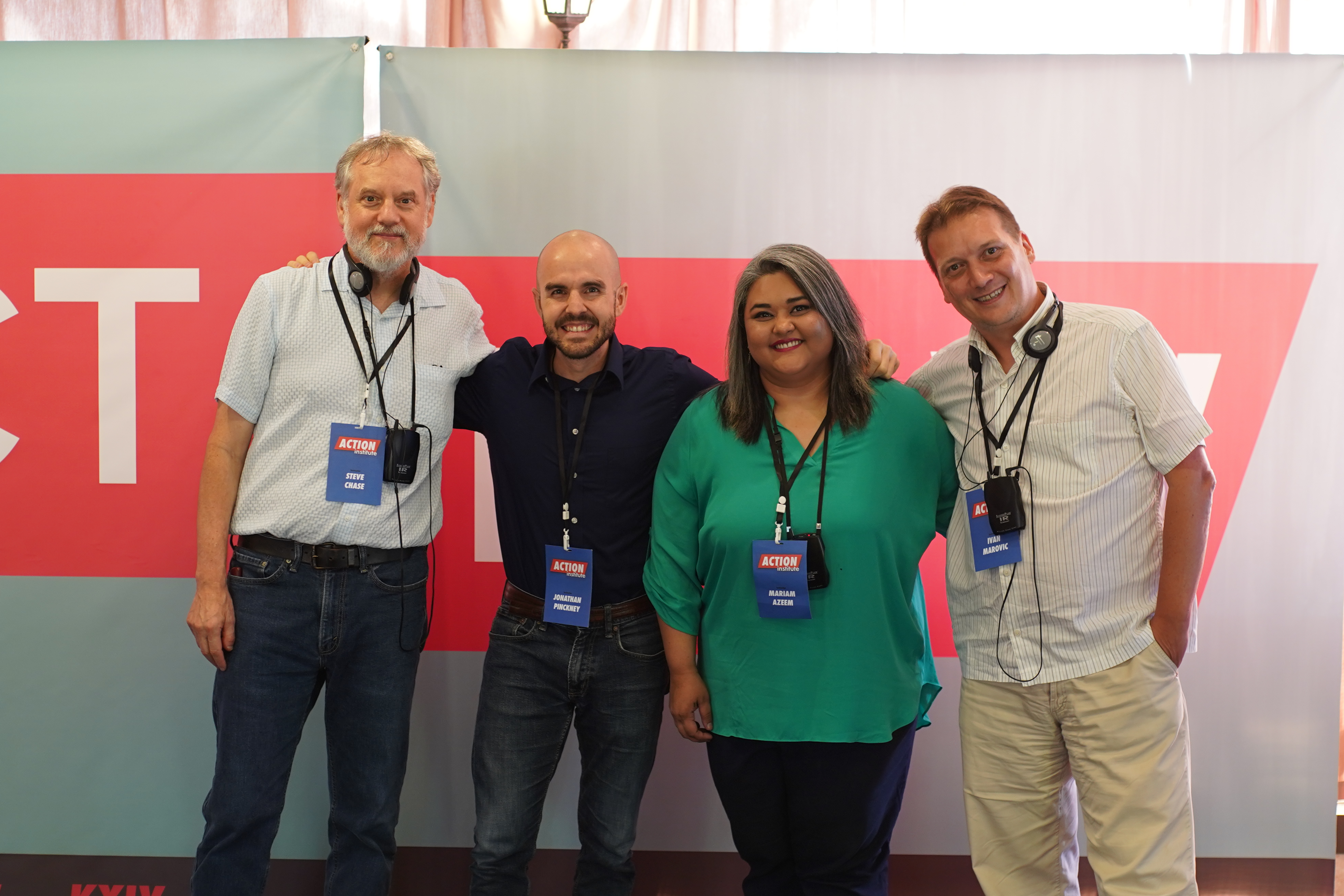
In September 2019, ICNC partnered with the V. Vernadsky Taurida National University, Free Russia House, and the Laboratory of Democratic Transformations to present the Second Eastern European Regional Institute on the Study and Practice of Strategic Nonviolent Action. In additional to local and regional presenters, international presenters included ICNC’s Manager of Academic Initiatives Steve Chase, NTNU Post-doctoral Research Fellow Jonathan Pinckney, Pakistani Activist Trainer Mariam Azeem, and former OTPOR leader Ivan Marovic [pictured above, left to right].
Research has shown that effectiveness of nonviolent movements depends on the scale 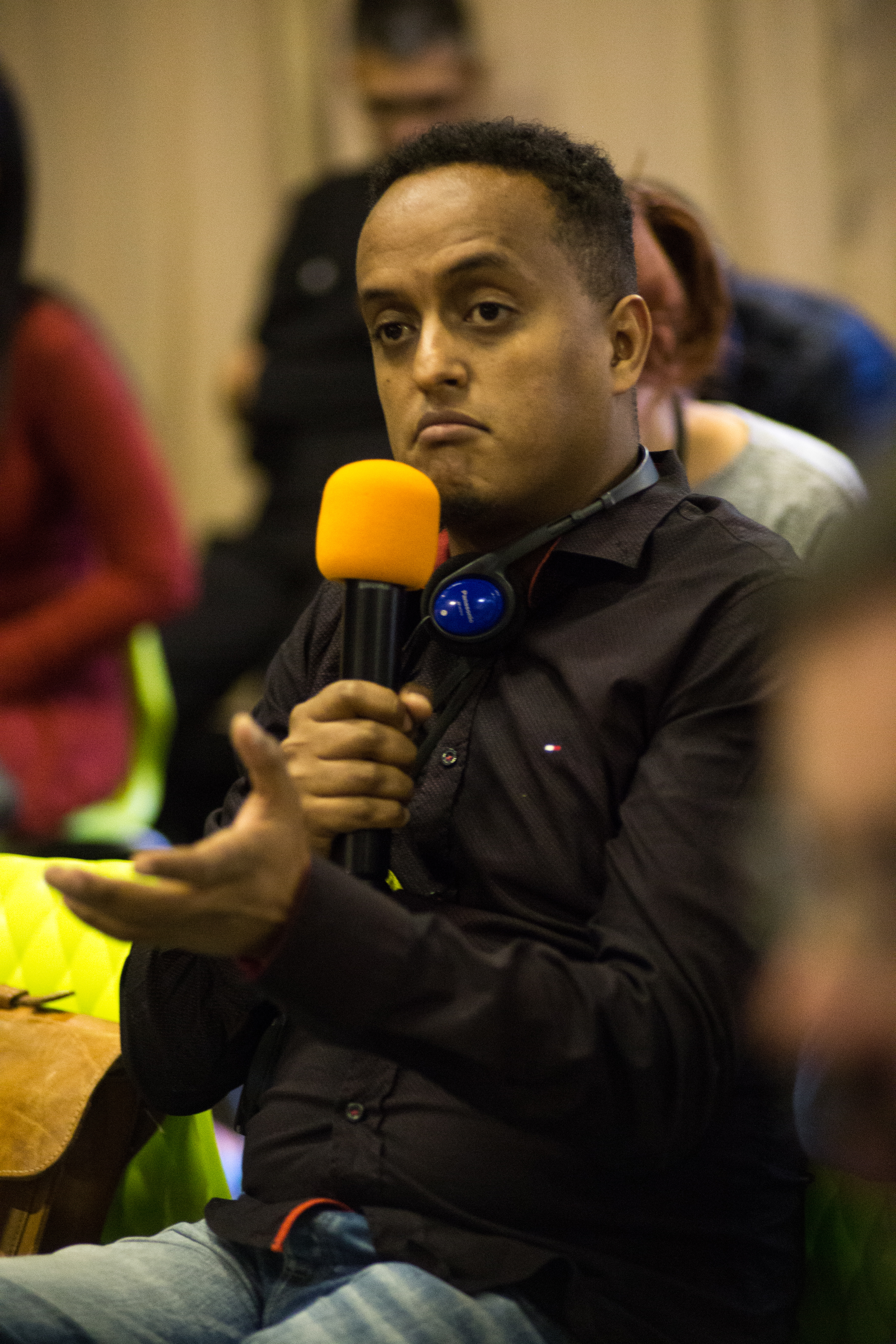 of people’s mobilization and participation and this, in turn, is influenced by the degree to which a movement is able to maintain nonviolent discipline. So how can ordinary people come and work together to win rights, democratic reforms, and social justice without resorting to violence? What are creative nonviolent actions that movements deploy to achieve their goals? How can lobbying, litigation, and elections (when available) be combined with powerful, nonviolent civil resistance strategies and tactics for maximum effect?
of people’s mobilization and participation and this, in turn, is influenced by the degree to which a movement is able to maintain nonviolent discipline. So how can ordinary people come and work together to win rights, democratic reforms, and social justice without resorting to violence? What are creative nonviolent actions that movements deploy to achieve their goals? How can lobbying, litigation, and elections (when available) be combined with powerful, nonviolent civil resistance strategies and tactics for maximum effect?
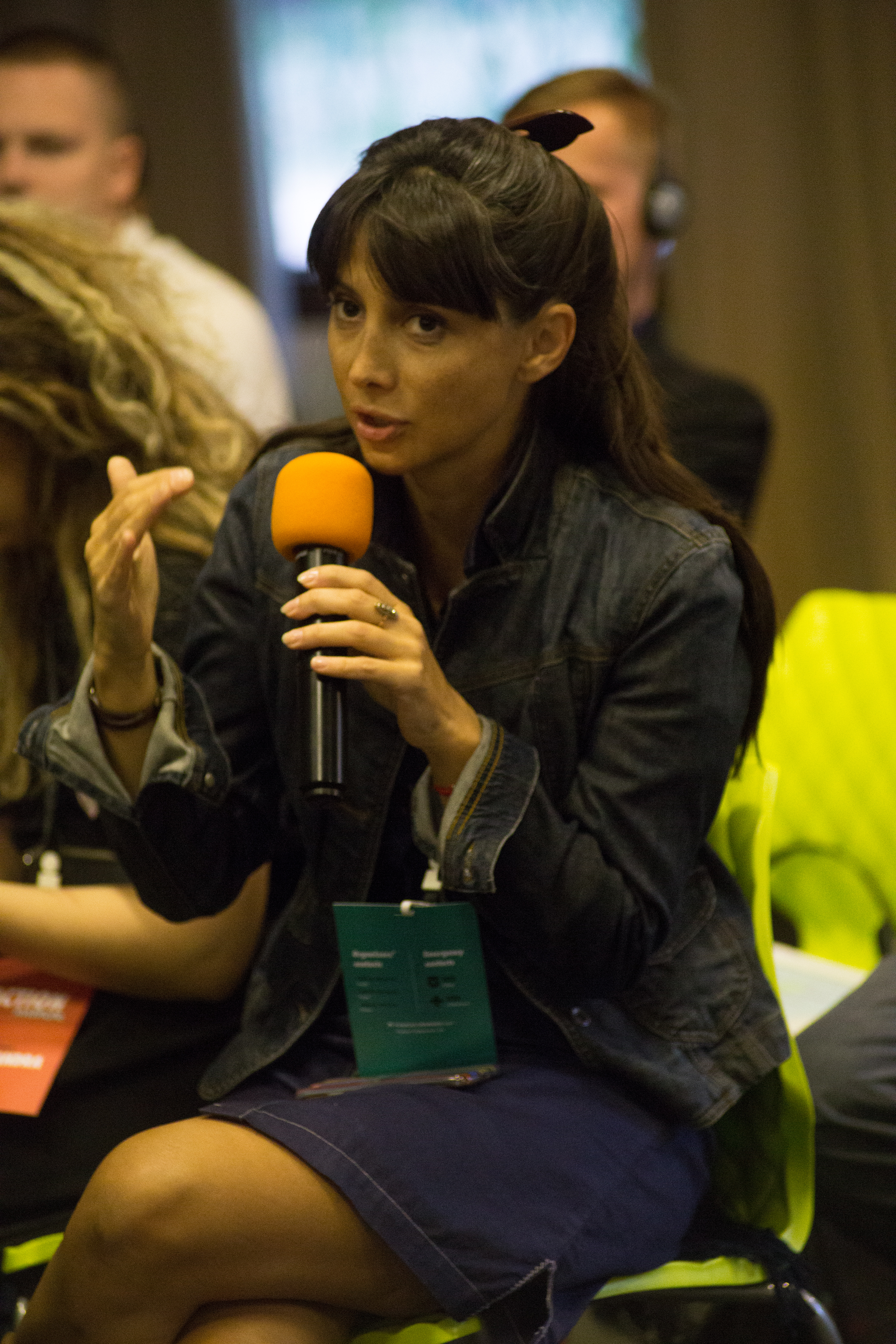
The Institute on the Study and Practice of Strategic Nonviolent Action offered both practitioners and academics access to global knowledge and experience in the theory, history, and practice of effecting needed political change through nonviolent means. This course was designed for those unwilling to tolerate injustice and human rights violations who are committed to finding evermore effective nonviolent strategies for change. It is meant for activists, scholars, and professionals who want to better understand how to change their communities, cities, countries, and even the world.
In six days, participants learned:
- How strategic nonviolent action works – and its theories of power and change
- Why nonviolent civil resistance campaigns either succeed or fail
- The record of civil resistance compared to armed struggle and movements with organized violent flanks
- Innovative nonviolent strategies and tactics and how they can be used to reach your goals
- Key lessons from a wide range of cases of civil resistance movements and campaigns from Eastern Europe and around the world.

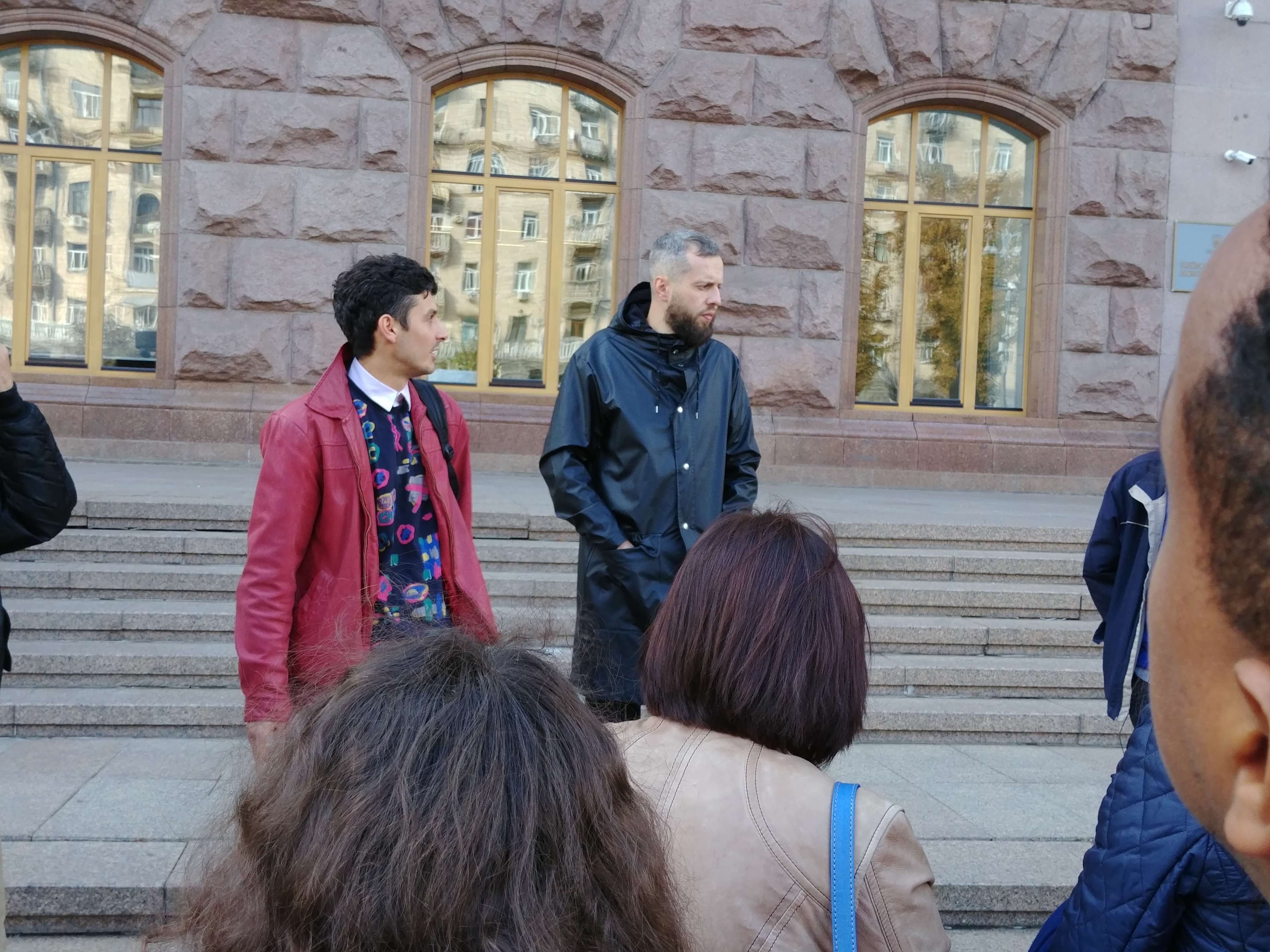
Attendees on a field trip to the site of the 2014 Revolution of Dignity
Second Latin American Regional Institute on the Study and Practice of Strategic Nonviolent Action
Quito, Ecuador, April 7–13, 2019
Fifty-two civic activists, organizers, educators, and practitioners from 12 Latin American countries, as well as France, Ukraine, and the United States met together in Quito for the second annual Regional Institute on the Study and Practice of Strategic Nonviolent Action to learn about the history, theory and application of nonviolent civil resistance. The Institute’s program was developed in partnership between ICNC, Factultad Latinoamericana de Ciencias Sociales (FLACSO) Ecuador, Pontificia Universidad Católica del Ecuador (PUCE), and CEMPROC. The program covered, among other things:

- Nonviolent struggles for community safety and peace
- Nonviolent struggles against authoritarian regimes
- Strategies and tactics to develop a movement and wage successful nonviolent resistance
- Case studies of nonviolent movements and campaigns from Mexico, the United States, the Caribbean and Latin America
- How to avoid, deter, and reduce the impact of repression
- Conflict analysis tools
- Small-group work on designing campaign strategies and nonviolent actions
- Overview of available education programs and opportunities in the field of civil resistance
- Field trip to a local community to learn about grassroots organizing and efforts to promote social and economic justice
Some participants joined a radio show and discussed their experiences. You can listen here.
You can also watch the video below to hear from some of the participants and organizers.
South Asian Regional Institute on the Study and Practice of Strategic Nonviolent Action
Dhulikhel, Nepal, March 3–9, 2019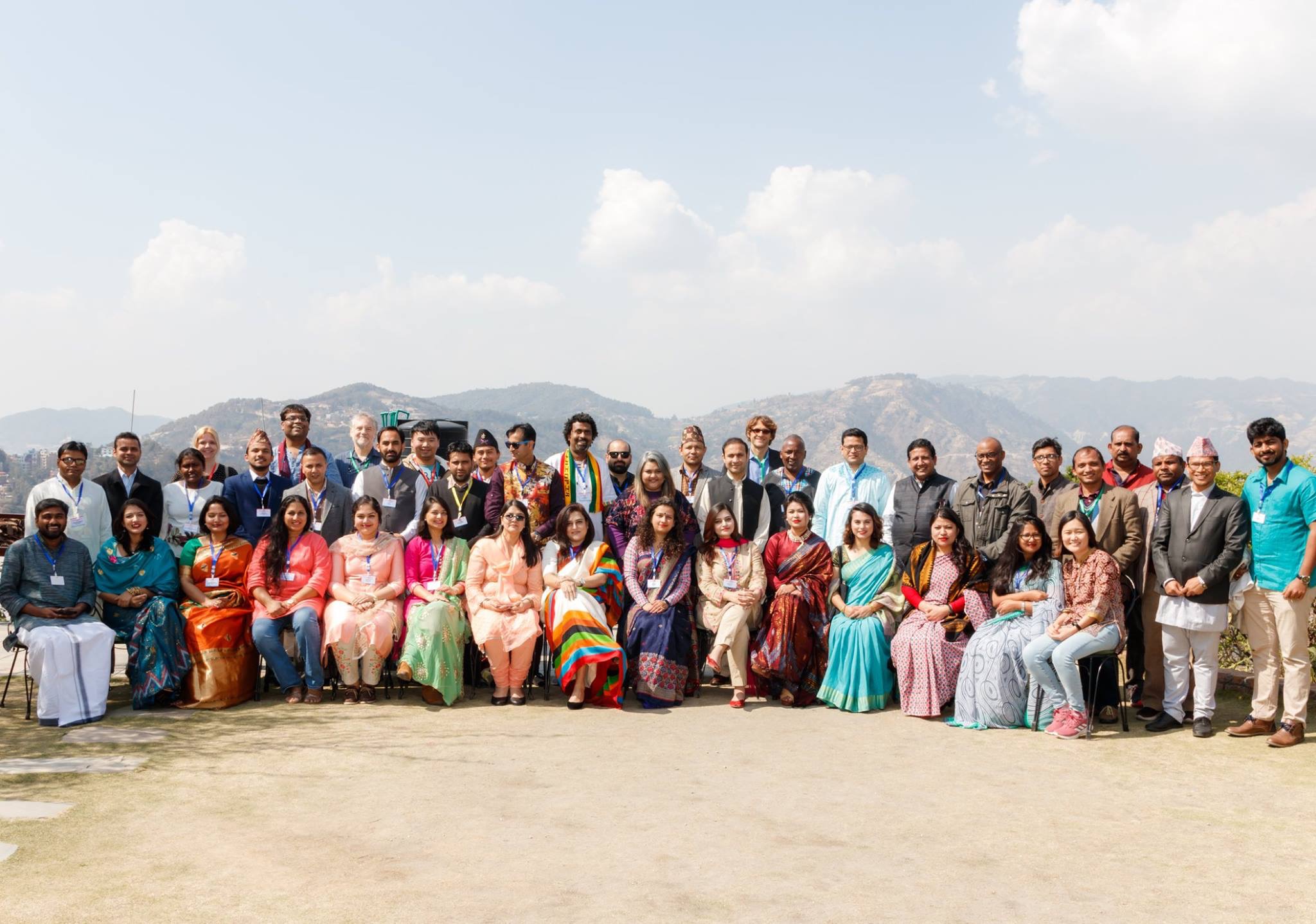
The Institute brought together close to 40 practitioners, activists, organizers and educators. They came from more than 10 countries from the region and beyond, including Pakistan, India, Nepal, Bangladesh, Afghanistan, Sri Lanka, Korea, Ethiopia, Netherlands, the US. Some participants have been part of the ICNC educational network and have also completed ICNC online courses.
“As Dalit people (untouchables), we have faced oppression for three thousand years. We also still have a long way to go to win full equality. Yet, by setting specific, achievable goals and using nonviolent methods of struggle we have won victory after victory. We think it is important to recognize the successes we’ve won on our journey toward justice. Never give up.” A Nepal community organizer.
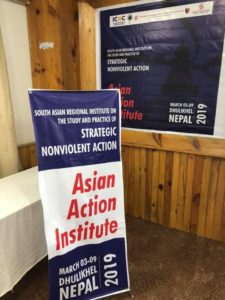 The institute consisted of five main parts:
The institute consisted of five main parts:
- generic content on civil resistance that ICNC delivered together with its regional collaborators;
- case studies of movements and campaigns from the region presented by local speakers;
- participants’ presentations on the campaigns they were involved in;
- a group strategy project where participants worked on devising a nonviolent campaign and a viable strategy and tactics; and last but not least
- a field trip to local communities and groups that shared stories and insights on nonviolent campaigns and civil resistance actions that the communities have been engaged in to press for specific political, social and economic goals.
The program integrated effectively theoretical and analytical learning and lecture-based type of education in the field of civil resistance, with case study-based approach that brought in practical insights and lessons learnt from local nonviolent organizing and campaigns and, finally, hands-on, strategic planning exercises where participants focus on devising relevant nonviolent actions and campaigns for rights.
Eastern European Regional Institute on the Study and Practice of Strategic Nonviolent Action
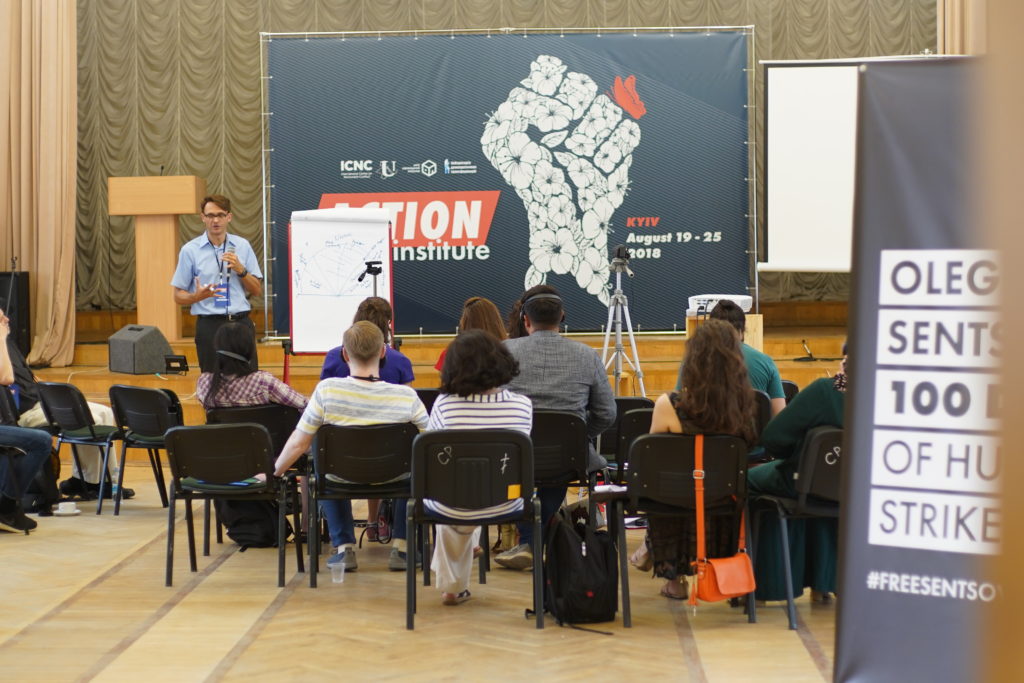 Kyiv, Ukraine. August 19–26, 2018
Kyiv, Ukraine. August 19–26, 2018
Institute Languages: Russian, Ukrainian, & English
The Eastern European Institute on the Practice and Study of Strategic Nonviolent Action offers both practitioners and scholars access to global knowledge and experience in the theory, history 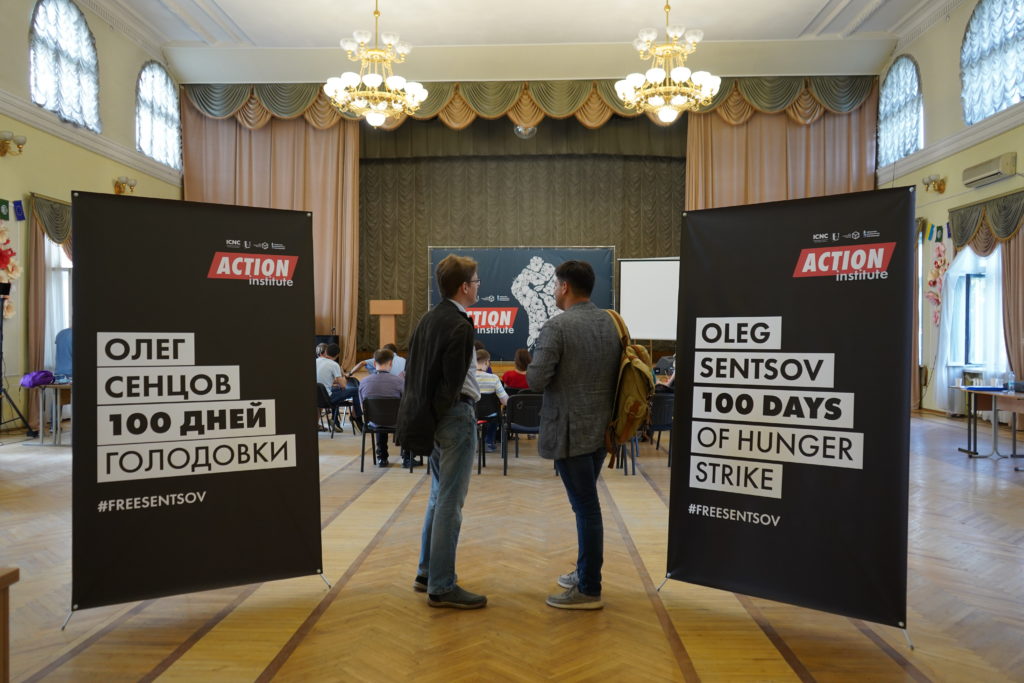 and practice of effecting needed political change through nonviolent means. It is designed for those who are unwilling to tolerate injustice and human rights violations and who are committed to finding more effective nonviolent strategies for change. It is meant for activists, scholars, and professionals who want to better understand how to change their communities, cities, countries, and even the world. The Institute will help attendees utilize the power of strategic nonviolent action campaigns to fight for truth, democracy and liberty. It is organized by the International Center on Nonviolent Conflict, the Taurida National Vernadsky University, Free Russia House, and the Laboratory of Democratic Transformations.
and practice of effecting needed political change through nonviolent means. It is designed for those who are unwilling to tolerate injustice and human rights violations and who are committed to finding more effective nonviolent strategies for change. It is meant for activists, scholars, and professionals who want to better understand how to change their communities, cities, countries, and even the world. The Institute will help attendees utilize the power of strategic nonviolent action campaigns to fight for truth, democracy and liberty. It is organized by the International Center on Nonviolent Conflict, the Taurida National Vernadsky University, Free Russia House, and the Laboratory of Democratic Transformations.
Latin American Regional Institute on the Study and Practice of Strategic Nonviolent Action
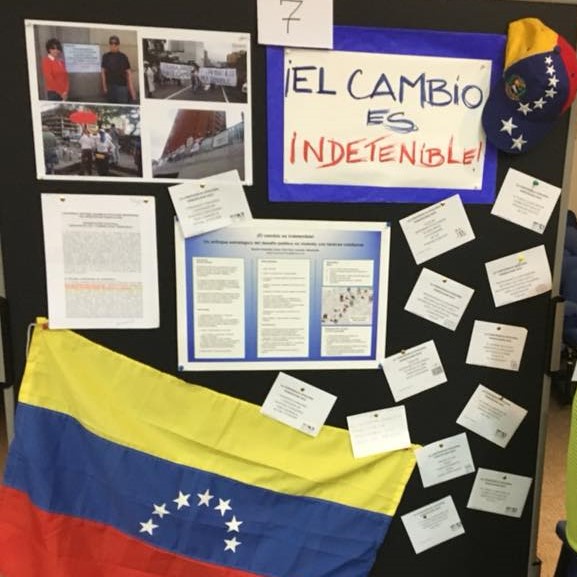 Flasco, Quito, Ecuador. February 19–24, 2018
Flasco, Quito, Ecuador. February 19–24, 2018
Institute Languages: English & Spanish
This Regional Institute offers practitioners and scholars alike a great opportunity to learn about, and reflect on, ways to achieve social change nonviolently. Participants will learn how strategic nonviolent action can shift the existing balance of power and increase awareness of issues of injustice with the goal of bringing about positive change. Case studies of nonviolent movements throughout Latin America and the world will also be explored, including a field trip to a local community mobilized and engaged in nonviolent actions. The Institute is organized by FLACSO Ecuador, CEMPROC, Pontificia Universidad Católica del and the International Center on Nonviolent Conflict and will take place in Quito, Ecuador from February 19 to 24, 2018.
Read two articles about the impact of the Institute:
- “A Catalyst for Action: Training and Education as Networking Platforms for Peace Projects” (pre-publication copy)
by Jeffrey Pugh. Journal of Peacebuilding & Development, 2019, September 2019 - “Weaving Transnational Activist Networks: Balancing International and Bottom-up Capacity-building Strategies for Nonviolent Action in Latin America”
by Jeffrey Pugh, Middle Atlantic Review of Latin American Studies, 2018 Vol. 2, No. 1, 130-144 - Spanish translation:
“Tejiendo redes de activismo transnacional: el balance entre estrategias internacionales y locales en la construcción de capacidades para la acción no violenta en América Latina“


